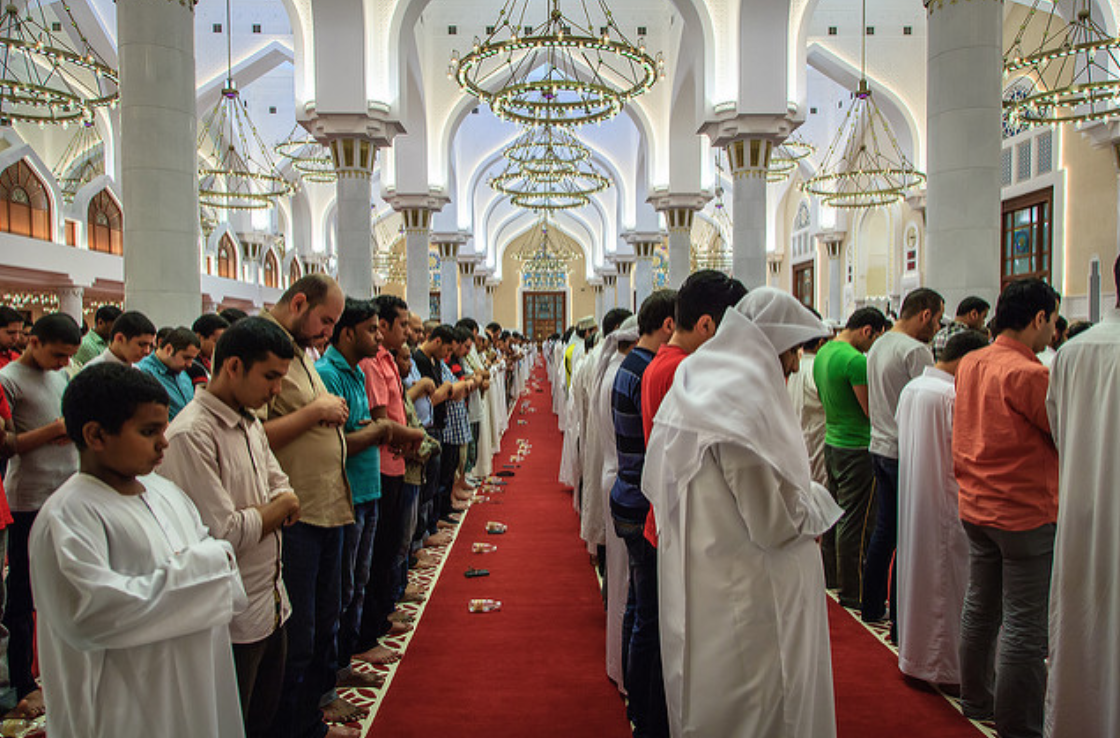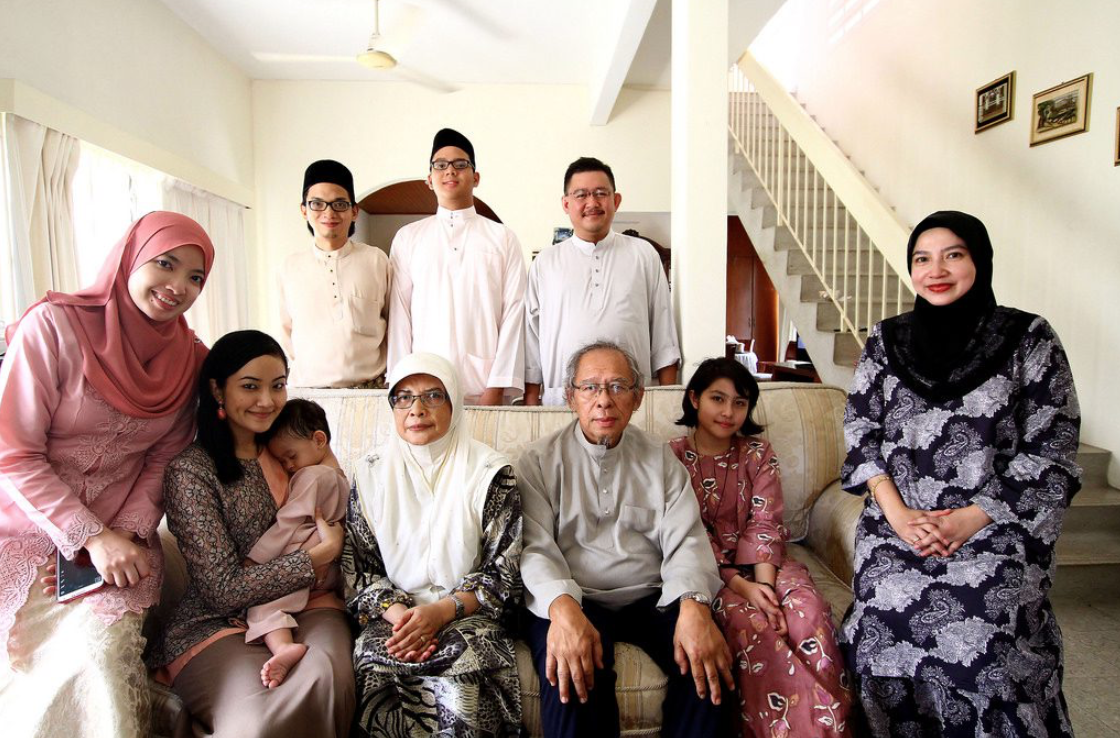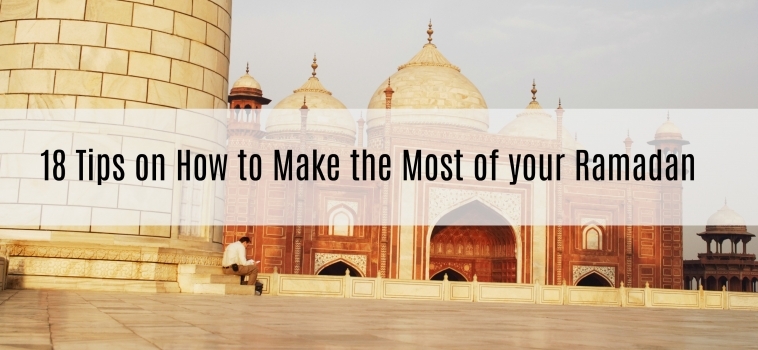Evaluate your life and reconnect with the Quran. Get organised and stay disciplined with these 18 tips on how to make the most of your Ramadan.
1) Account For Your Actions
Ramadan is a time to reflect on your past actions and amend those habits that are holding you back.
Think about the possible improvements that you can make within yourself to please Allah (swt). Make a list and jot down any traits that may displease Allah and make this month the time to work on yourself to bring improvements.
2) Taraweeh Prayers

Try to attend as many Taraweeh prayers as possible.
The Messenger of Allah (pbuh) said “Whoever prays Qiyaam i.e, Taraweeh, with the Imam until he finishes, it will be recorded as if he spent the whole night in prayer” (al-Tirmidhi)
It is only during this blessed month that you will get such an opportunity. If you have missed out on a few nights, make sure to attend the closing nights so you can benefit from the Dua’s made at the end by the Imam.
3) Don’t Waste Your Time and Money
- Wasting time is one thing that takes us away from Deen. Avoid indulging in activities that bring no benefit.
- Watch your spending. Ramadan can be a time when people get excited and carried away especially with Eid preparations, overspending when they could have benefited by giving in charity.
4) Worship More and Sleep Less
If you are able to lessen your sleep time during Ramadan so that you can worship more, then this will be good for you to reap all the benefits of extra worship.
- Go to bed soon after you come home from offering Taraweeh.
- Wake up at least an hour before Suhoor so you can offer Tahajjud.
- Don’t hurry to go to bed after Fajr. Instead, use this quiet time to recite Quran.
5) Moist Your Tongue With Dhikr of Allah
‘Alhamdulilah’, ‘SubhanAllah’, ‘La hawla wala quwwata’, and ‘Astaghfirullah’.
Constant remembrance of Allah will help you be mindful to keep track of your actions, plus it’s such an easy way to gain reward. Dhikr is greater than everything. Don’t become of those …” who do not remember Allah except little.”

“… And the remembrance of Allah is greater…” (29:45)
6) Leave what Does not Concern or Benefits You
Most of the actions that we do are linked with intentions to please Allah.
Taking care of our children, working hard to earn money or spending time with our family are all forms of worship. Spending hours, gossiping and Idle chit-chat with friends neglecting your family will not benefit you, but will more than likely lead to harm, especially when fasting. Think about how you spend your time and control your speech. Don’t concern yourself with matters that are not your business, stay focused.
7) Seek Forgiveness for Those who have Oppressed You
It is one of the hardest yet the most loved in the sight of Allah to forgive those who have oppressed you.
It isn’t easy to pray for someone who has been mean to you but in doing so It shows the spiritual growth in your heart. To make it easier for you to forgive, think about your good deeds that will be removed if there is someone you may have oppressed knowing or unknowingly. You will be held accountable and your good deeds reduced bringing you closer to the hellfire.
The Prophet (pbuh) said that: “Whoever suffers an injury and forgives (the person responsible), Allah will raise his status to a higher degree and remove one of his sins” (Al-Tirmidhi).
8) Repent For Your Transgressions
We need to keep repenting constantly for the sins and transgressions we commit on a daily basis.
Allah is the Most Forgiving and He will forgive you if you sincerely repent. Make the most of this blessed month and seek repentance for all your mistakes and ensure you do not go back to the sin.
9) Understand Quran By Reading the Tafseer
The Qur’an is the words of Allah which our Creator sent to us as a guide.
Therefore, it is important to understand what you are reciting. If we don’t understand then how can we be guided?
Seeking knowledge is one of the highest forms of worship. Try to increase your knowledge this blessed month and study the explanation of the Qur’an.
10) Keep Good Company

Your company will always have a major impact on your life.
Be mindful how you live your life and who you surround yourself with. Be selective with your choice of friends and company in order to safeguard your religion. It is better to be lonely for a while and be close to Allah than to have a company that will only deviate you from the right path.
The Prophet (pbuh) said, “A true believer is a mirror of his brother. He prevents him from any harm” (Abu Dawood)
11) Avoid Overeating
Overeating will lead to procrastination and laziness.
You will feel lethargic and won’t be able to do much. Eat slowly and stop as soon as you feel full. Do not go overboard preparing many dishes for iftar. Keep it simple so whoever is cooking can spend more time in worship, reciting Qur’an etc., rather than cooking all day.
12) Prepare Yourself For The Last 10 Nights
Prepare yourself mentally and physically.
Plan a routine for your last 10 nights, Make sure all your Eid shopping is done so you can focus and put in extra worship. Strive to spend your last 10 nights standing in prayer. Seek laylat-ul-qadr a night which is greater than a thousand months of worship.
13) If Possible Do I’tikaf
I’tikaf is to isolate yourself from all forms of worldly activities and spend the last 10 days of Ramadan in the Masjid.
Women can do this in a small area of their home. This act carries immense reward for the doer and is one of the best ways to boost your eman. It is a time to reflect and replenish your soul while being fully absorbed in the worship of Allah the Most Merciful.
14) Plan A Routine For Fasting After Ramadan
Fasting is good for your soul as well as for your body.
Fasting helps us to train our basic instincts and desires. To keep away from sin and overcome bad habits, hence it should be a part of your routine after Ramadan
- Fast for 6 days in Shawwal which is equivalent to fasting the entire year.
- Fast the bright days of each month 13th, 14th and 15th.
- Fast every Monday and Thursday according to the Sunnah.
15) Continue After Ramadan
Whatever you have been successful in achieving during Ramadan continue to commit to it after Ramadan.
Don’t allow yourself to weaken, remember Ramadan is a time of training for you to build your eman. Remain steadfast.
The Prophet (pbuh) said, “say I believe in Allah”, then be steadfast (Muslim)
16) Build Broken Ties

Make effort to reach out to your relatives that you haven’t seen in a long time.
Forgive each other and start your relationships anew. Make this Eid the one where you are back with all your loved ones. Be the first to reach out this Ramadan. Allah has promised to keep good relations with those who keep good relations with their family members.
17) Feed the Fasting
Obtain reward by feeding those who are fasting.
The Prophet (pbuh) said, “Whoever feeds a fasting person will have a reward like that of the fasting person, without any reduction in his reward.”
Earn extra reward by:
- Inviting others to break the fast with you, especially new Muslims
- Give sadakat to a charity to help provide a Ramadan food pack for the poor and needy.
18) Plan A Balanced Life
Lastly, reflect upon your condition.
I personally find it a constant struggle to balance my life, especially during Ramadan. As much as Ramadan can be a hectic time, it is still the best month to reflect on our lives. Make the most of this month and plan for a balanced life ahead. Set goals in the following areas to help bring balance.
• Spirituality
• Parents and Family
• Health
• Education
• Work and Finances
• Socialising
• Giving & Community
Identify the areas that need work and improvement and set goals. If you have successfully gained new habits such as reciting Quran, praying Tahajjud etc then make sure you continue to schedule this into your daily plans.
Author Bio
Jamila Jones was born in the United Kingdom in the City of Bristol. She was raised a Christian until her Journey to Islam in 2004. She first studied online with Al Quran Wa Sunnah Online Islamic University from 2004-2007 and continued her Online Islamic Studies with AlHuda Institute Canada and then with the Islamic Online University.
You can connect with Jamila via:
Website: https://studentsofquran.com/
Facebook: facebook.com/studentsnquran
Twitter: twitter.com/jalizjones
Instagram: instagram.com/studentsofquran
Pinterst: pinterest.co.uk/stuofquran
Google+: plus.google.com/u/0/+JamilaJones






I hope Muslimah Bloggers is a good bloggers for Muslim World